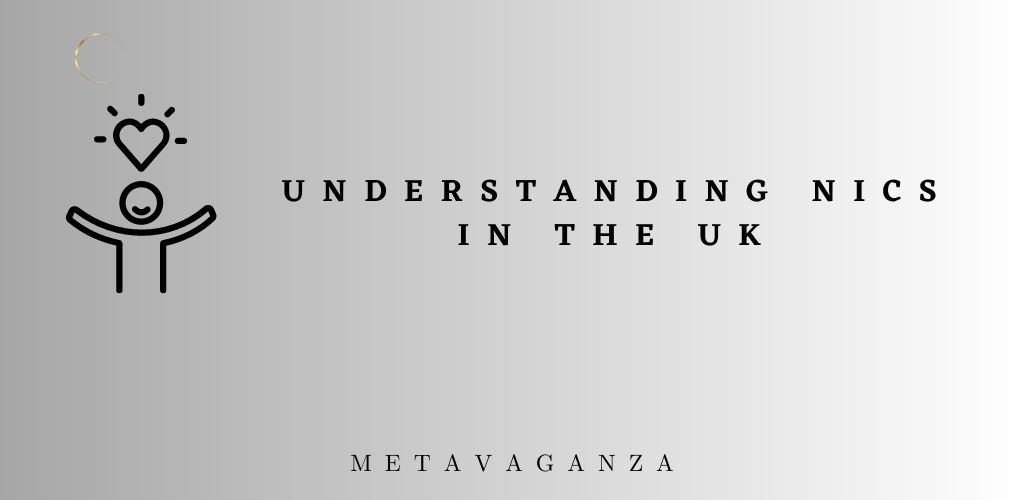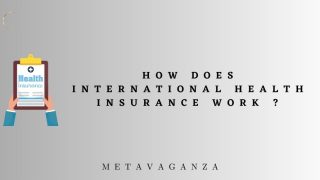Metavaganza – National Insurance Contributions (NICs) are mandatory payments made by employees, self-employed individuals, and employers in the UK. These contributions are collected by HM Revenue & Customs (HMRC) and are used to fund certain state benefits, including the State Pension, Maternity Allowance, and Jobseeker’s Allowance.
In this article, we’ll take a closer look at NICs, their types, calculations, and consequences of not paying them.
National Insurance Contributions: Understanding NICs in the UK
Class 1 NICs
Class 1 NICs are paid by employees and are deducted automatically from their salaries. Employers also contribute Class 1 NICs on behalf of their employees. Class 1 NICs are calculated based on an employee’s earnings and are subject to thresholds and rates.
The current thresholds for Class 1 NICs are as follows:
£184 per week for primary Class 1 NICs
£166 per week for secondary Class 1 NICs
The rates for Class 1 NICs are as follows:
12% of earnings between £184 and £967 per week
2% of earnings above £967 per week
There are certain exemptions and reliefs available for Class 1 NICs, such as for employees under 21 years of age or over the State Pension age.
Class 2 and Class 4 NICs
Class 2 NICs are paid by self-employed individuals who have profits above a certain threshold. The current threshold for Class 2 NICs is £6,515 per year, and the rate is £3.05 per week.
Related Article : UK National Insurance Rates for Employers 2023/24
Class 4 NICs are also paid by self-employed individuals, but they are calculated based on profits. The current rates for Class 4 NICs are as follows:
9% on profits between £9,568 and £50,270 per year
2% on profits above £50,270 per year
There are certain exemptions and reliefs available for both Class 2 and Class 4 NICs, such as for individuals with low profits or those who have reached the State Pension age.
NICs for Self-Employed Individuals
Self-employed individuals are required to pay both Class 2 and Class 4 NICs. The Class 2 NICs are paid on a weekly basis, while the Class 4 NICs are paid annually as part of the self-assessment tax return.
The thresholds and rates for Class 2 and Class Employer’s NICs
Employers are also required to pay NICs on behalf of their employees. The employer’s NICs are calculated based on an employee’s earnings, and the current thresholds and rates are as follows:
£170 per week for the primary threshold
13.8% on earnings above the secondary threshold of £184 per week
There are certain exemptions and reliefs available for employers, such as for those who hire apprentices or employees under 21 years of age.
Consequences of Not Paying NICs
Failing to pay NICs can have serious consequences. HMRC can impose penalties and fines on individuals and businesses who do not pay their NICs on time.
In addition, not paying NICs can affect an individual’s entitlement to certain state benefits, including the State Pension, Maternity Allowance, and Jobseeker’s Allowance.
Not paying NICs can also result in legal consequences, such as court orders and even imprisonment in extreme cases.
NICs and State Pension
NICs play a crucial role in determining an individual’s entitlement to the State Pension. To qualify for the full State Pension, individuals must have paid or been credited with 35 years of NICs. Those who have not paid or been credited with the full 35 years may still be eligible for a reduced State Pension.
Individuals who have gaps in their NICs record can make voluntary contributions to fill those gaps. In addition, certain individuals may be eligible for National Insurance credits, such as those who are unemployed or caring for children.
Conclusion
National Insurance Contributions are an important part of the UK’s social security system. Understanding the different types of NICs, their calculations, and their consequences is essential for employees, self-employed individuals, and employers. Ensuring that NICs are paid on time and in full can help protect an individual’s entitlement to state benefits and avoid penalties and fines.
FAQs
1. How often do I need to pay my NICs?
Employees’ NICs are deducted automatically from their salaries, and employers’ NICs are paid on a monthly basis. Self-employed individuals pay their Class 2 NICs on a weekly basis and their Class 4 NICs as part of their self-assessment tax return.
2. Can I claim back NICs if I overpaid?
Yes, if you have overpaid your NICs, you can apply for a refund from HMRC.
3. What happens if I don’t pay my NICs on time?
If you do not pay your NICs on time, HMRC can impose penalties and fines. In addition, not paying NICs can affect your entitlement to certain state benefits and result in legal consequences.
4. Can I pay voluntary contributions to fill gaps in my NICs record?
Yes, individuals who have gaps in their NICs record can make voluntary contributions to fill those gaps.
What are National Insurance credits?
National Insurance credits are a way of protecting an individual’s entitlement to certain state benefits, such as the State Pension, when they are not able to pay NICs. Certain individuals, such as those who are unemployed or caring for children, may be eligible for National Insurance credits.


